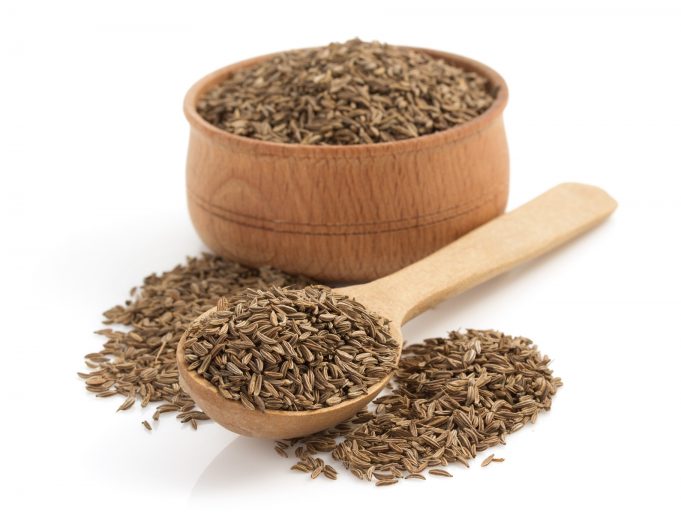Cumin or jeera is a staple in Indian cooking. But do you know its health benefits?
Cumin or jeera is a popular spice used in Indian cooking. It comes with a host of health benefits, aiding in digestion, improving immunity and treating piles, insomnia, respiratory disorders, asthma, bronchitis, common cold, lactation, anemia, skin disorders, boils and cancer. Cumin, scientifically known as Cuminum Cyminum, belongs to the Apiaceae family and adds a warm and bitter flavor to food. It also has abundant oil content that is beneficial for health.
- Cumin contains the aromatic Cuminaldehyde, which activates the salivary glands and promotes primary digestion of food. Further digestion of the food is enabled by thymol, another compound present in cumin, which stimulates the secretion of acids, bile and enzymes in the stomach and the intestines for complete digestion. Its carminative properties give relief from gas troubles, further enhancing digestion and appetite. The magnesium and sodium content in cumin also promotes digestion. Jeera is also used for relief during stomach-aches by taking it with hot water.
- Powdered cumin seeds can be had when suffering from piles. Since it is rich in dietary fiber, and has carminative, stimulating, antifungal and antimicrobial properties, it helps during piles (hemorrhoids). Other infections or wounds in the digestive and excretory system can also be healed by the consumption of jeera.
- Cumin has a tranquilizing effect and is good for those suffering from insomnia as it improves the absorption of vitamins (particularly B-complex) and aids digestion. It also contains chemicals that relieve stress.
- Cumin also contains caffeine and acts as an expectorant, helping clear congestion and can help those suffering from respiratory disorders such as asthma and bronchitis. Its antiviral properties help fight the common cold and suppress the development of coughing by drying up the excess mucus.
- Being rich in iron and considerable amounts of vitamin-C, jeera strengthens the immune system, prevents anemia and protects against infections. The iron content also makes it good for women in various stages of their biological cycle. Thymol in cumin increases secretion of milk in lactating women. It also has enough calcium to meet our daily calcium needs, which further boosts the quality of milk in lactating mothers.
- Being rich in iron, cumin improves blood hemoglobin content, which in turn enhances the reach of oxygen to all parts of the body, leading to increased cognitive performance and decrease in cognitive disorders such as Alzheimer’s disease and dementia.
- The vitamin-E in cumin helps preserve the skin and prevent premature aging.
- Being a detoxifying agent, cumin also has chemo-preventive properties, accelerating the secretion of detoxifying and anticarcinogenic enzymes, beneficial antioxidants such as vitamin-C and vitamin-A and aiding in cancer prevention.
- Cumin powder paste can be used to treat boils, skin disorders, itchiness and body heat, for burning sensation, as a face pack and even to protect and nourish hair.
So small and yet so potent, that is cumin. Next time you add jeera to a meal, be grateful for the wonderful benefits it imparts to your body to keep it healthy and glowing.













































